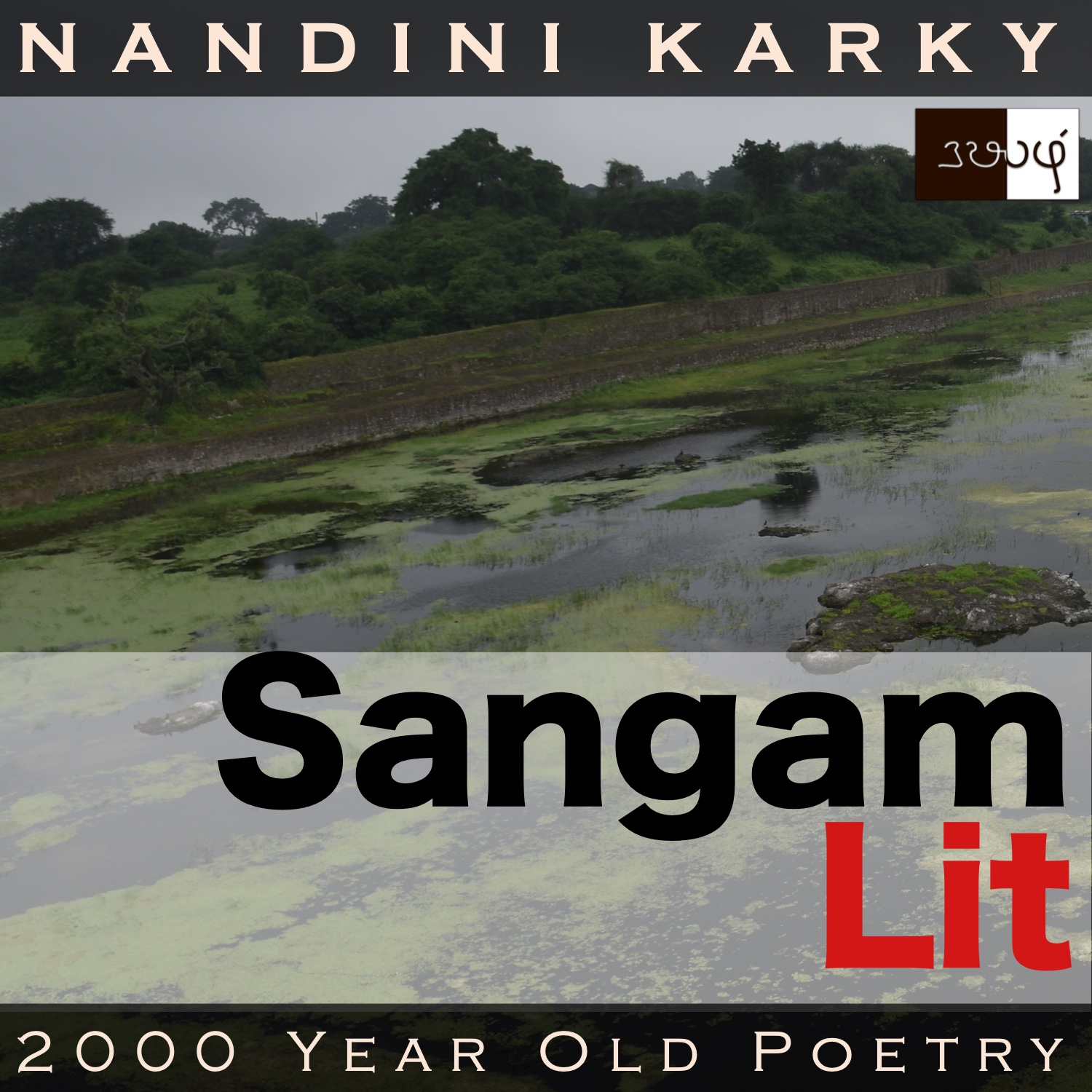Podcast: Play in new window | Download
Subscribe: Apple Podcasts | Spotify | Amazon Music | Android | iHeartRadio | TuneIn | RSS | More

In this episode, we relish an apt simile that acutely depicts a lady’s situation, as portrayed in Sangam Literary work, Kurunthogai 399, penned by Paranar. Set in the farmlands of ‘Marutham’, the verse speaks in the voice of the lady to the confidante, as the man delays seeking her hand in marriage.
ஊர் உண் கேணி உண்துறைத் தொக்க
பாசி அற்றே பசலை-காதலர்
தொடுவுழித் தொடுவுழி நீங்கி,
விடுவுழி விடுவுழிப் பரத்தலானே.
‘He is the cause and cure’ says a voice in the verse. The opening words ‘ஊர் உண் கேணி’ meaning ‘town’s common water tank’ talk about the practice of digging wells in villages for the use of the entire community. Two entities being linked in comparison here are ‘moss and pallor’ appearing in ‘பாசி அற்றே பசலை’. The rhythmic, repetitive phrase ‘தொடுவுழித் தொடுவுழி நீங்கி’ meaning ‘when touched, it disappears’ talks about the power of something in making something else vanish away. Ending with the words ‘விடுவுழி விடுவுழிப் பரத்தலானே’ meaning ‘when left, it spreads’, the verse intrigues our curiosity.
What could be that connection between an element of nature and an effect on the lady’s nature? The context reveals that the man and lady were leading a love relationship and the man was trysting with the lady for a long while. One day, the lady turns to her confidante and says, “Akin to the moss that floats on drinking water, gathered from the common town well, is this pallor caused by pining. For, when the lover nears, it vanishes, and when he leaves, it spreads.” With these words, the lady conveys the consequences of the man’s actions, as he indulges in temporary trysting without a thought about seeking a permanent union with the lady.
Time to explore the nuances in this tiny verse. The lady starts by talking about a common town well, where people gather drinking water. Although this is said as a matter-of-fact reference, there’s a deep significance for the same. This reference indicates the collectivism and settled life that was established in this classic period. That a common town well has been dug indicates that a group of people have decided to live together in that area and have planned a way to have a steady supply of drinking water, no matter the season. Unlike those who lived a nomadic life, these people did not have to pack their belongings and go in search of greener pastures when the seasons changed, but with their engineering, they could stay put and satisfy their needs.
Returning to the verse, we find out the reason why the lady has referred to this town well is to point out the moss that spreads on the surface of its drinking water. Just like how the moss disappears when people gather water, and then coats the surface entire, when left unused, the pallor on her skin also seemed to leave the instant the man caressed her, and started to spread, when he bid her farewell after his tryst and left to his village. Be it moss or be it a worm, the Sangam folks never shirk away from employing an image in the outer world if it serves to describe the inner world of their protagonists. Through these words, the lady is subtly nudging the confidante to take steps to guide the man towards seeking the lady’s hand. This verse is a true-blood ‘Kurunthogai’ song with sparse words, telling an emotional story with an evocative simile!




Share your thoughts...